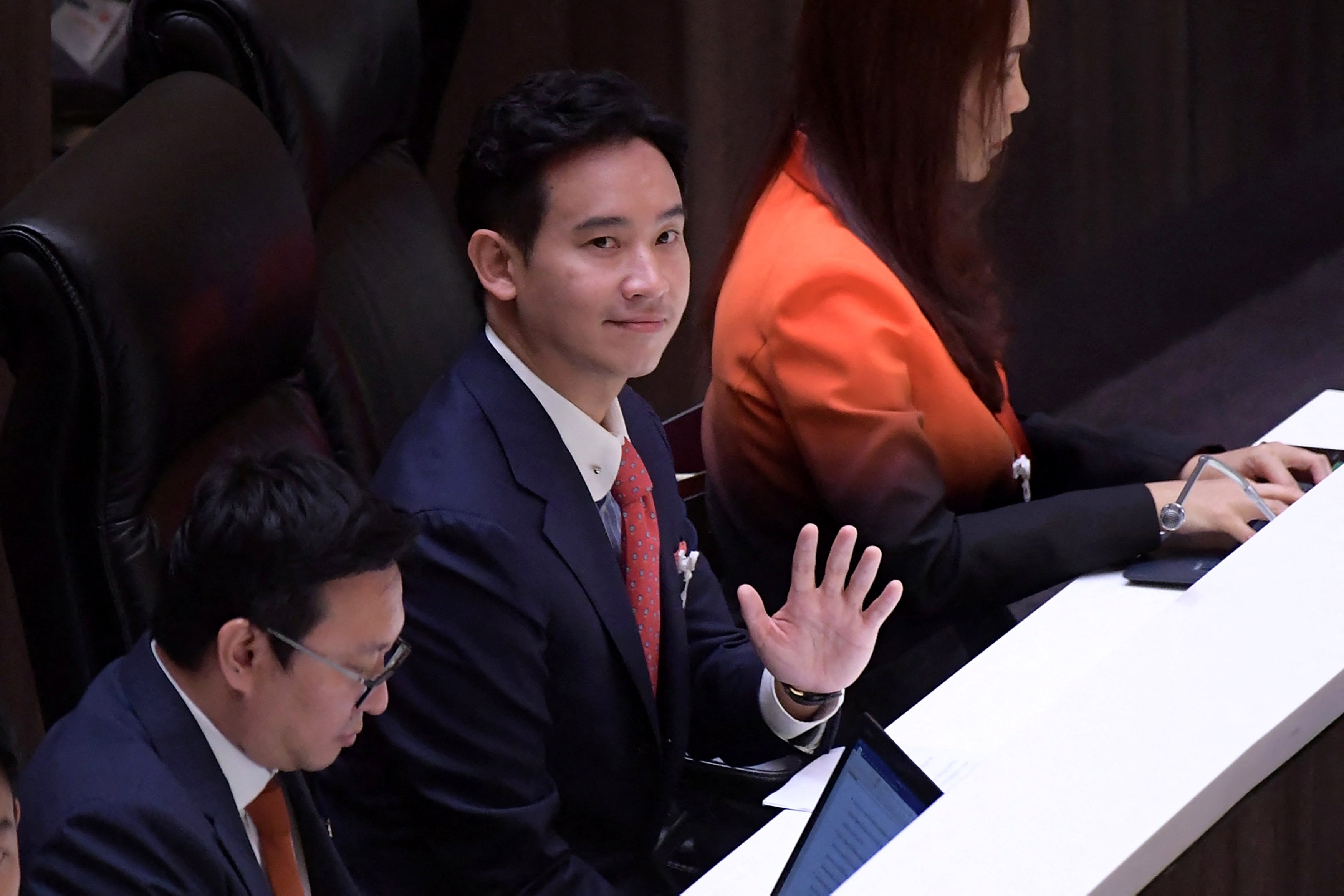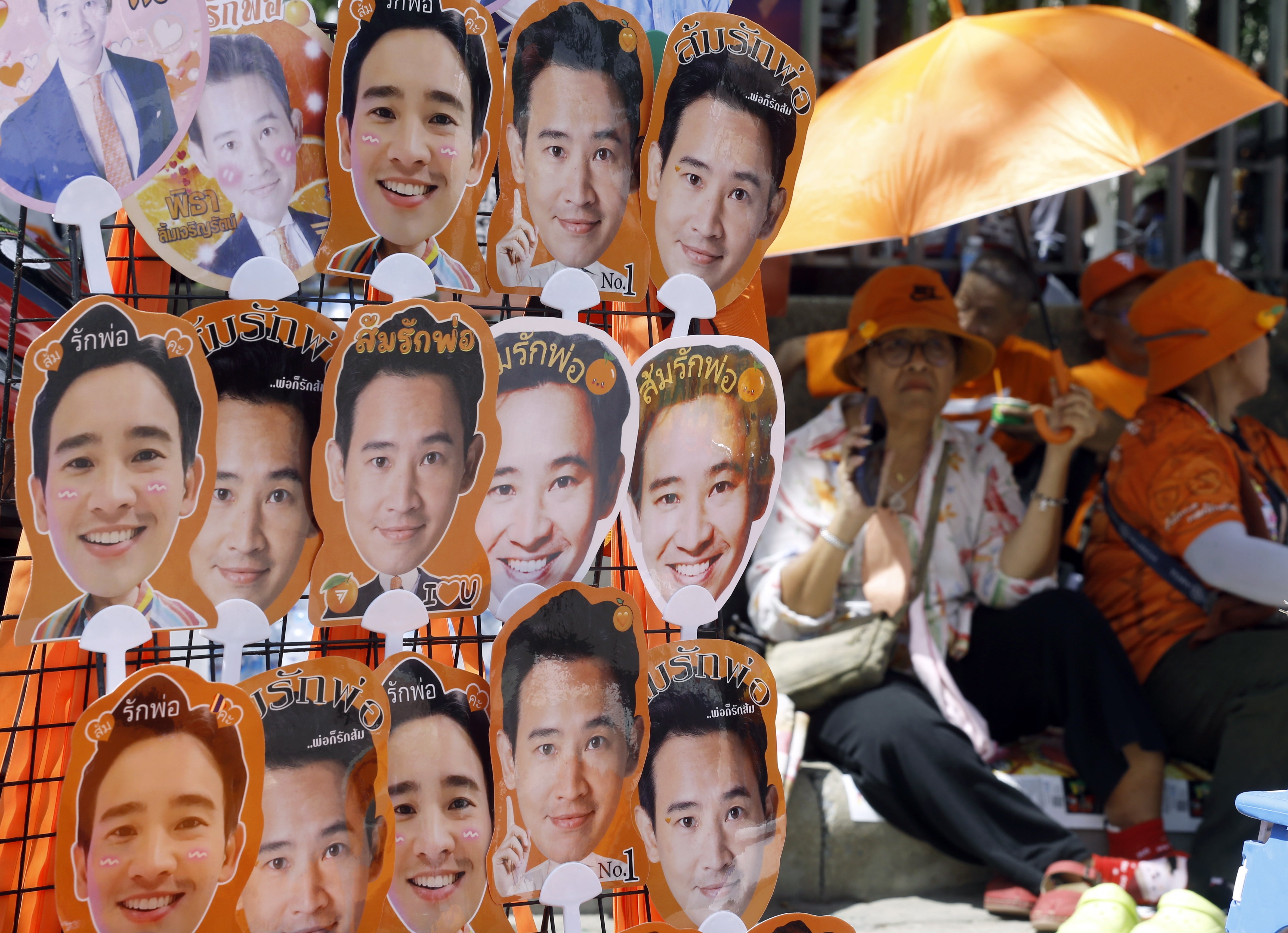Thailand’s parliament votes to reject progressive leader Pita Limjaroenrat as next prime minister
Parliament convenes for high-stakes vote on premiership

Your support helps us to tell the story
From reproductive rights to climate change to Big Tech, The Independent is on the ground when the story is developing. Whether it's investigating the financials of Elon Musk's pro-Trump PAC or producing our latest documentary, 'The A Word', which shines a light on the American women fighting for reproductive rights, we know how important it is to parse out the facts from the messaging.
At such a critical moment in US history, we need reporters on the ground. Your donation allows us to keep sending journalists to speak to both sides of the story.
The Independent is trusted by Americans across the entire political spectrum. And unlike many other quality news outlets, we choose not to lock Americans out of our reporting and analysis with paywalls. We believe quality journalism should be available to everyone, paid for by those who can afford it.
Your support makes all the difference.Pita Limjaroenrat, the leader of Thailand’s progressive Move Forward party, has failed to secure the required votes to become the next prime minister.
The 42-year-old was the only candidate nominated on Thursday after weeks of talks following Thailand’s 14 May general election, in which his left-wing alliance comfortably defeated conservative parties including that of the incumbent military-backed government.
But Mr Pita still faced a challenge in securing the required backing of more than half of the 749-member bicameral parliament, after a military-drafted change to the constitution meant that all 250 upper-house senators are chosen by the country’s generals.
A host of abstentions and votes against Mr Pita meant that it was clear he would fall short of the required 375 votes by some margin, while the final votes continued to be placed on Thursday evening.
Mr Pita secured 316 votes out of 737 names called during the parliamentary vote, just 51 votes short of the required number.
"We accept the result. We are not retreating," Mr Pita said, adding he would not give up home to be the next prime minister. "The result was not what we expected, we will work hard to gather support for next vote."
The parliament is expected to attempt another vote on 19 July, which Mr Pita can contest if nominated again. A third vote, if necessary, will be held a day later.
Move Forward’s victory in the May election alongside its alliance partner Pheu Thai was seen as a major political turning point after nearly a decade of government led by Prayut Chan-o-cha, a former general who seized power in a 2014 military coup.
Mr Pita’s party captured 151 of the 500 House seats to emerge as the largest single party, and then assembled a coalition government-in-waiting.
The eight parties in the coalition account for a healthy majority of 312 seats in the 500-seat lower house, but it left Mr Pita still needing the support of at least 64 senators to be elected prime minister.
"I will do my best to match the hope and encouragement from the people," Mr Pita had told reporters as he arrived at parliament earlier in the day.
The vote took place a day after the country's election commission concluded there was evidence that Mr Pita violated election law and referred his case to the constitutional court for a ruling, which risks his disqualification as a lawmaker.
The Harvard graduate told reporters on Wednesday that he felt the election commission's decision was unfair and should not have been made so close to the parliamentary vote.

He added there were attempts to "block the majority government of the people from getting to run the country in various ways" which was "quite normal for the path to power in our country".
"... I am encouraged and hopeful to fix things as they come until the dream of mine and the people can be reached," he told the Thai Rath TV channel.
A second legal challenge was also mounted against Move Forward's flagship proposal to amend Thailand’s draconian lese majeste (insulting the monarchy) laws, which also likely harmed his prospects of winning over the required number of senators.
Mr Pita's party promised major reforms during the election campaign, including breaking up monopolies and ending military conscription, which put him at odds with a powerful nexus of conservatives.
Supporters of Mr Pita's coalition were expected to gather outside the parliament building in protest against Thursday's vote.
Caretaker prime minister Prayut Chan-o-cha, whose United Thai Nation party finished fifth in the elections, will remain the country’s leader till his successor is declared.
Mr Prayuth, 69, a former army commander who led the 2014 military coup, announced earlier this week that he was retiring from the political arena.
Members of the second-largest party in the coalition Pheu Thai are expected to field property tycoon, Settha Thavisin, for the next round of votes.



Join our commenting forum
Join thought-provoking conversations, follow other Independent readers and see their replies
Comments